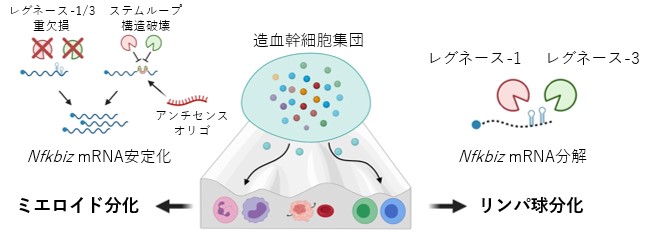2023-11-10 インペリアル・カレッジ・ロンドン(ICL)
◆15年の国際プロジェクトでは、他の14の合成染色体も完成。これらを組み合わせて、来年、初の人工真核生物ゲノムを完成させる計画。Ellis教授は、合成染色体の機能性が酵母ゲノムの解明に貢献し、Blount博士は新たな生物学的応用の可能性を強調している。
<関連情報>
- https://www.imperial.ac.uk/news/249414/scientists-take-huge-step-towards-making/
- https://www.cell.com/cell-genomics/fulltext/S2666-979X(23)00244-6
合成酵母XI染色体設計は染色体外循環DNA動態研究のためのテストベッドとなる Synthetic yeast chromosome XI design provides a testbed for the study of extrachromosomal circular DNA dynamics
Benjamin A. Blount,Xinyu Lu,Maureen R.M. Driessen,Dejana Jovicevic,Mateo I. Sanchez,Klaudia Ciurkot,Yu Zhao,Stephanie Lauer,Robert M. McKiernan,Glen-Oliver F. Gowers,Fiachra Sweeney,Viola Fanfani,Evgenii Lobzaev,Kim Palacios-Flores,Roy S.K. Walker,Andy Hesketh,Jitong Cai,Stephen G. Oliver,Yizhi Cai,Giovanni Stracquadanio,Leslie A. Mitchell,Joel S. Bader,Jef D. Boeke,Tom Ellis
Cell Genomics Published:November 08, 2023
Highlights
•The 660-kb yeast synthetic chromosome XI (synXI) was assembled in vivo
•Extensive debugging fixed defects mapping to redesigned noncoding DNA
•Cells with debugged synXI have fitness and transcription profiles equal to wild type
•Sc2.0-formatted chromosomal loci can be used to form extrachromosomal circles
Summary
We describe construction of the synthetic yeast chromosome XI (synXI) and reveal the effects of redesign at non-coding DNA elements. The 660-kb synthetic yeast genome project (Sc2.0) chromosome was assembled from synthesized DNA fragments before CRISPR-based methods were used in a process of bug discovery, redesign, and chromosome repair, including precise compaction of 200 kb of repeat sequence. Repaired defects were related to poor centromere function and mitochondrial health and were associated with modifications to non-coding regions. As part of the Sc2.0 design, loxPsym sequences for Cre-mediated recombination are inserted between most genes. Using the GAP1 locus from chromosome XI, we show that these sites can facilitate induced extrachromosomal circular DNA (eccDNA) formation, allowing direct study of the effects and propagation of these important molecules. Construction and characterization of synXI contributes to our understanding of non-coding DNA elements, provides a useful tool for eccDNA study, and will inform future synthetic genome design.
Graphical abstract



